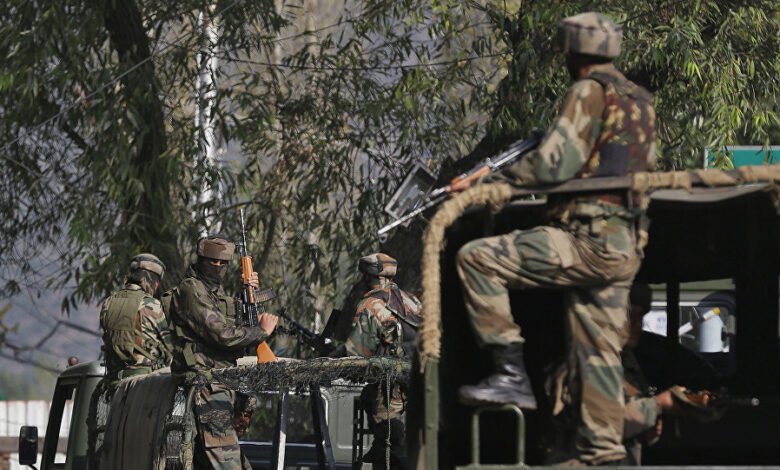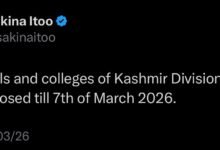
Srinagar (UNI) : The Indian Army on Tuesday opened online registrations for recruitment in the Centre’s Agnipath scheme in the twin Union Territories of Jammu and Kashmir and Ladakh, a Srinagar-based Defence Spokesman said.
The government had last month unveiled the Agnipath scheme for recruiting young soldiers across the three services, who will be known as Agniveers.
The recruitment rally by Army Recruiting Office, Srinagar for Agniveers will be conducted from September 17- 30 at Haiderbeig, Pattan in Baramulla district of J&K.
“The recruitment rally will be for recruitment as Agniveers under Agnipath Scheme. All eligible unmarried male candidates born between October 1, 1999 to April 1, 2005 (both dates inclusive) with requisite educational qualifications from UT of J&K belonging to Srinagar, Anantnag, Baramulla, Pulwama, Badgam, Kupwara, Shopian, Ganderbal, Bandipora and Kulgam districts and UT of Ladakh belonging to Leh and Kargil districts can apply for enrolment under categories of Agniveer General Duty, Agniveer Technical, Agniveer Clerk/Store Keeper Technical and Agniveer Tradesmen,” the spokesman said.
Registration is open online at website www.joinindianarmy.nic.in, with effect from July 4 to August 3, he added.
The Army has advised the candidates to register online at the earliest.
Meanwhile, Divisional Commissioner Kashmir, Pandurang K Pole today held a brief meeting with Director Recruiting, Army Recruiting Officer, Col G Suresh to discuss the recruitment rally as per newly announced Agnipath in Kashmir and other related issues.
A J&K government spokesman said the Col G Suresh informed recruitment notice has been uploaded on Army website today.
Pole appealed to the youth of valley to avail this golden opportunity to get enrolled into Indian Army as Agniveers.
He asked all the Deputy Commissioners to paste the recruitment notice on notice boards in DC offices for the information of general public.
The Army new recruitment scheme had sparked protests in several parts of the country with aspirants raising job security and post-service benefits as their major concerns.
UNI





